Plight of gay refugees, Malawi
One evening, Didier, 27, closed up his shop for the day, in a town in Kenya and went to meet friends for a house party - he had no idea his life was about to change so drastically - and permanently. He was arrested - with no legitimate grounds - abused by police and forced to leave the country. “I miss everything,” he says.
Matofu, 41, was at risk of being killed by his own family in Uganda. Family members had murdered his older brother for being attracted to men. Later, they began to suspect that Matofu was also gay. His mother took him across the Kenyan border for protection - and she too was murdered when she returned. “My uncles killed her because she hid me,” Matofu says with a deep intake of breath - “I was just eight”. He hid his identity into teens and adulthood - but recently the threats resurfaced. A single parent, he fled for his life along with his son Suphi, 10.
The refugee camp in Malawi has also failed to be a safe space. Malawi’s Centre for Human Rights and Rehabilitation (CHRR) accuses the UN Refugee Agency in Malawi (UNHCR) of being homophobic, based on research carried out with LGBTQIA+ people in the camp.
Matofu, 41, and his son Suphi, 10, arrived at Dzaleka Refugee Camp in Malawi in 2015, as did Didier, 27, who they became friends with at the camp (all names changed).
Story produced for Frontline AIDS.
Since the documentation, successful advocacy saw Didier, Matofu and Suphi granted asylum in Canada where they have settled into new and peaceful lives.
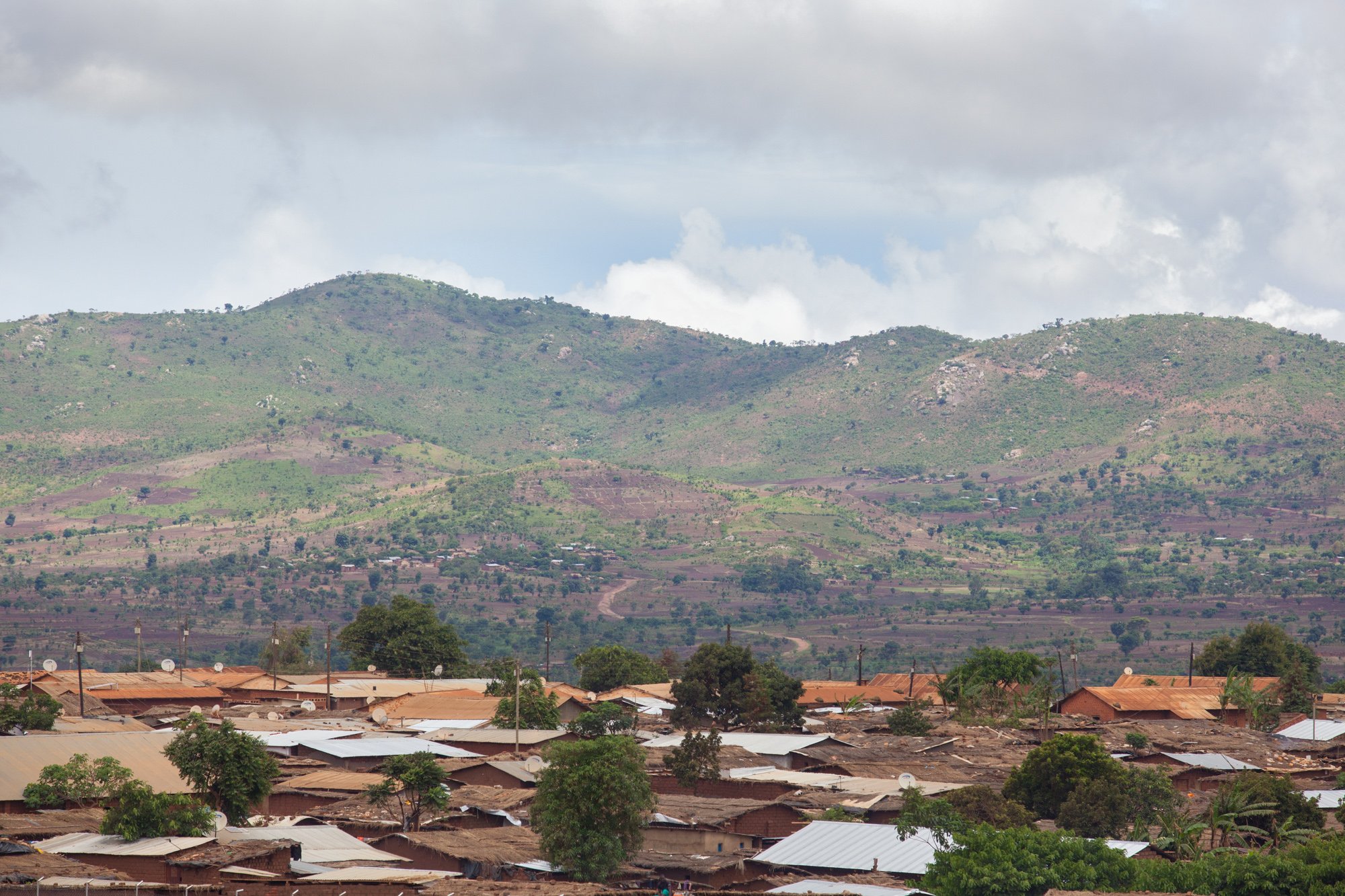
Dzaleka refugee camp in Lilongwe, Malawi, is home to nearly 30,000 refugees and asylum seekers. It was originally a prison for 6,000 people.

“What hurt me the most was that you couldn’t even go and say ‘hi’ to another person,” says Didier. “I love playing football, I’d see people playing, but know that they wouldn’t accept me joining in."

“A refugee is someone who has to move from place to place because of some problem,” says Suphi, 10.

LGBTQIA+ people have experienced violent attacks in the camp and CHRR reports that the UNHCR in Malawi has advised people not to “flaunt” their sexuality.
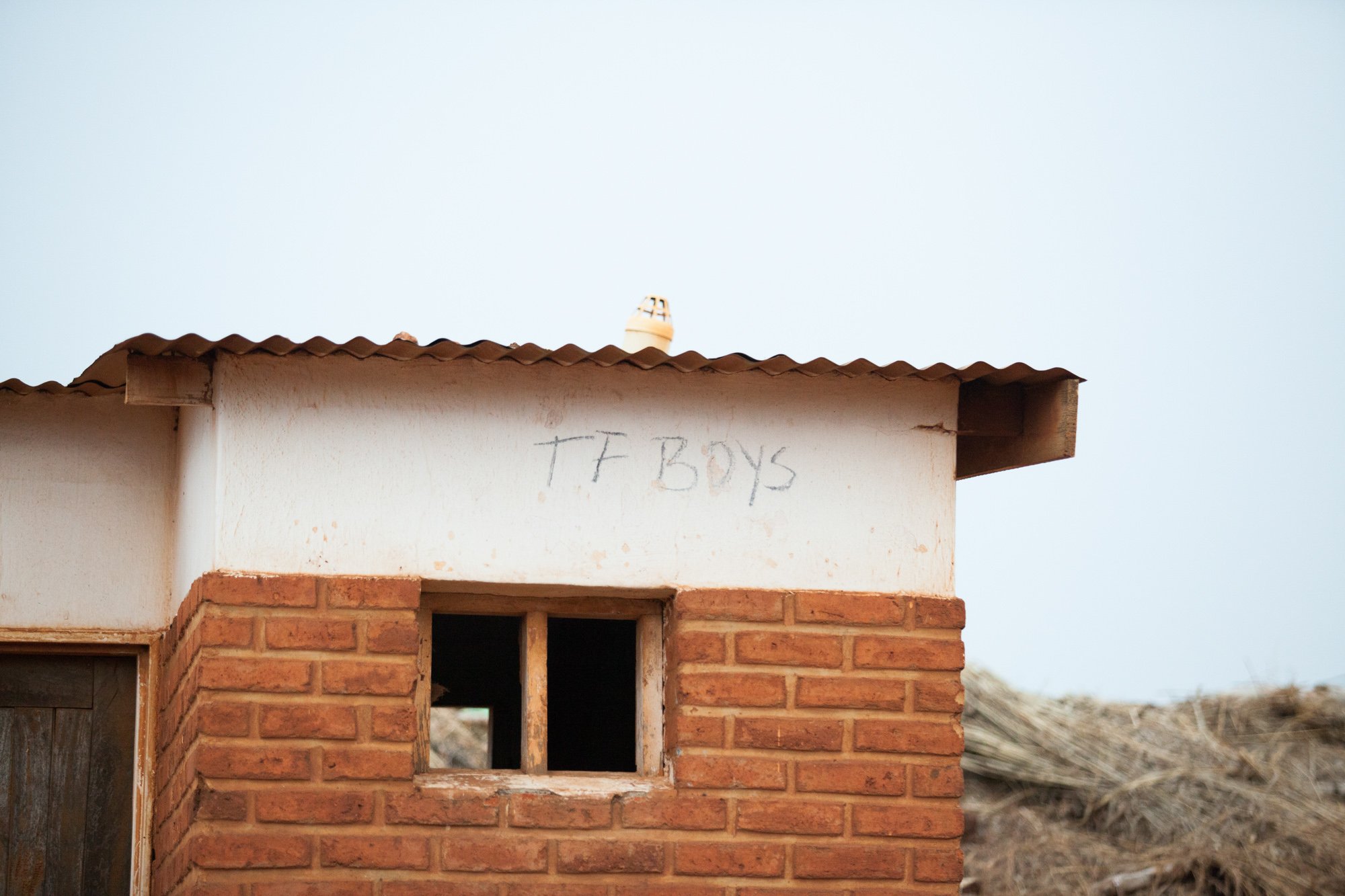
Toilet For (TF) Boys. Leaving their block to use the toilet became a gauntlet, especially at night.

Matofu and Didier faced homophobia daily. “One time I was collecting water and a police man came and threw away my jerry can,” said Matofu.

They had human faeces thrown through their kitchen window onto their cooking.

"When we visited the market to buy food some women threw tomatoes at us, no-one would sell to us,” says Didier.
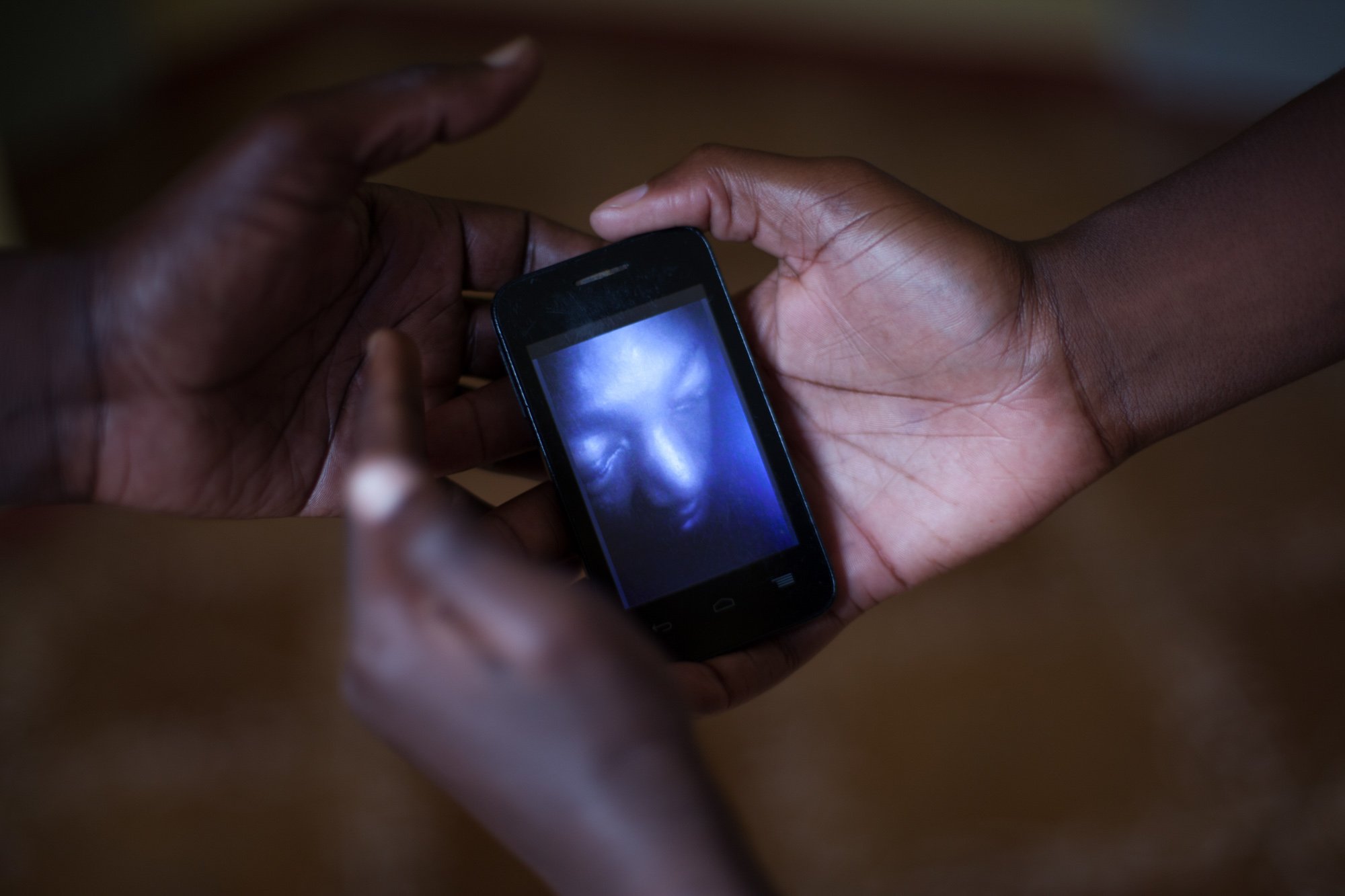
An attack on Didier. “I was beaten, and people threw chemicals in my eyes. I went to hospital, they did nothing. I went to UNHCR, they said they’d see what they can do." After about three weeks he received eye-drops.

“One night, I saw torches coming towards our hall from outside. They said ‘security, open’.” Matofu was stabbed in the arm before he could slam the door. “Imagine what could have happened if I’d let them inside.”

Three men dragged Suphi to a graveyard and knocked him out with Chloroform. Matofu and Didier heard his screams before the handkerchief had been placed over his face and thankfully ran in the right direction. They believe the 10 year old was going to be buried alive. Because his father is gay.

The onsite police station in Dzaleka camp where Matofu and Didier tried to report crimes. "They said they are going to arrest us instead because homosexuality is illegal in Malawi,” - Matofu. At the time the country's anti-homosexuality laws were already suspended pending a review.
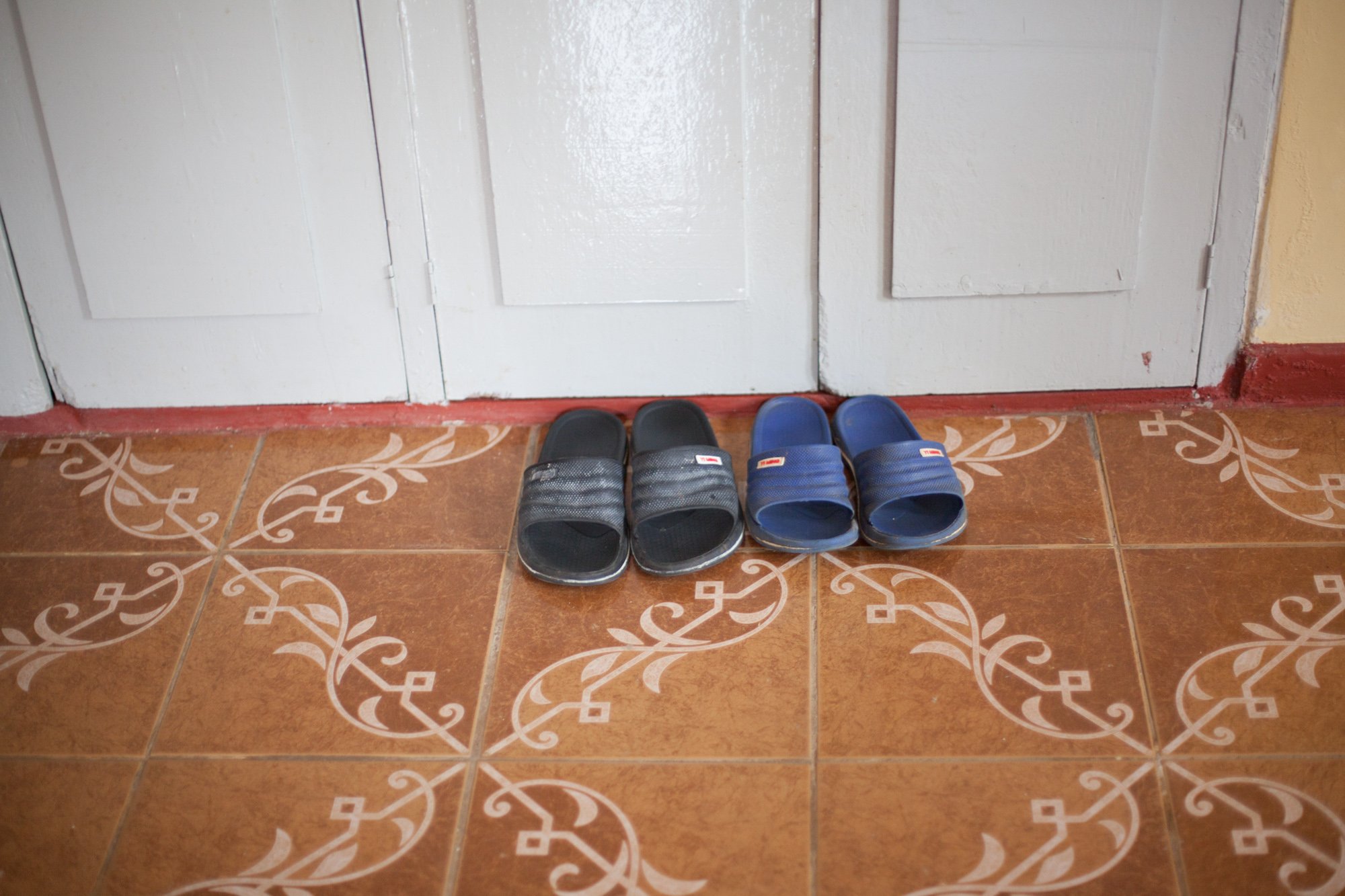
The same night Matofu packed a bag and he and Suphi left the camp. He had no money, no documents, and no plan, other than to keep his child alive. Four years after they originally sought refuge they were on the road again.

Mike Kaiyatsa, CHRR's advocacy manager believes it would be possible for someone to be murdered with impunity in Dzaleka. In fact he has a “hunch” that it has already happened. Circumstances around a murder point to homophobic motivations but there is not enough evidence to prove it.

Lionel Richie, ‘How Long?” on Didier’s MP3 player. Neither men know how long it will take for their claim to be assessed or how long they will be in the safehouse without documents or the option to work.
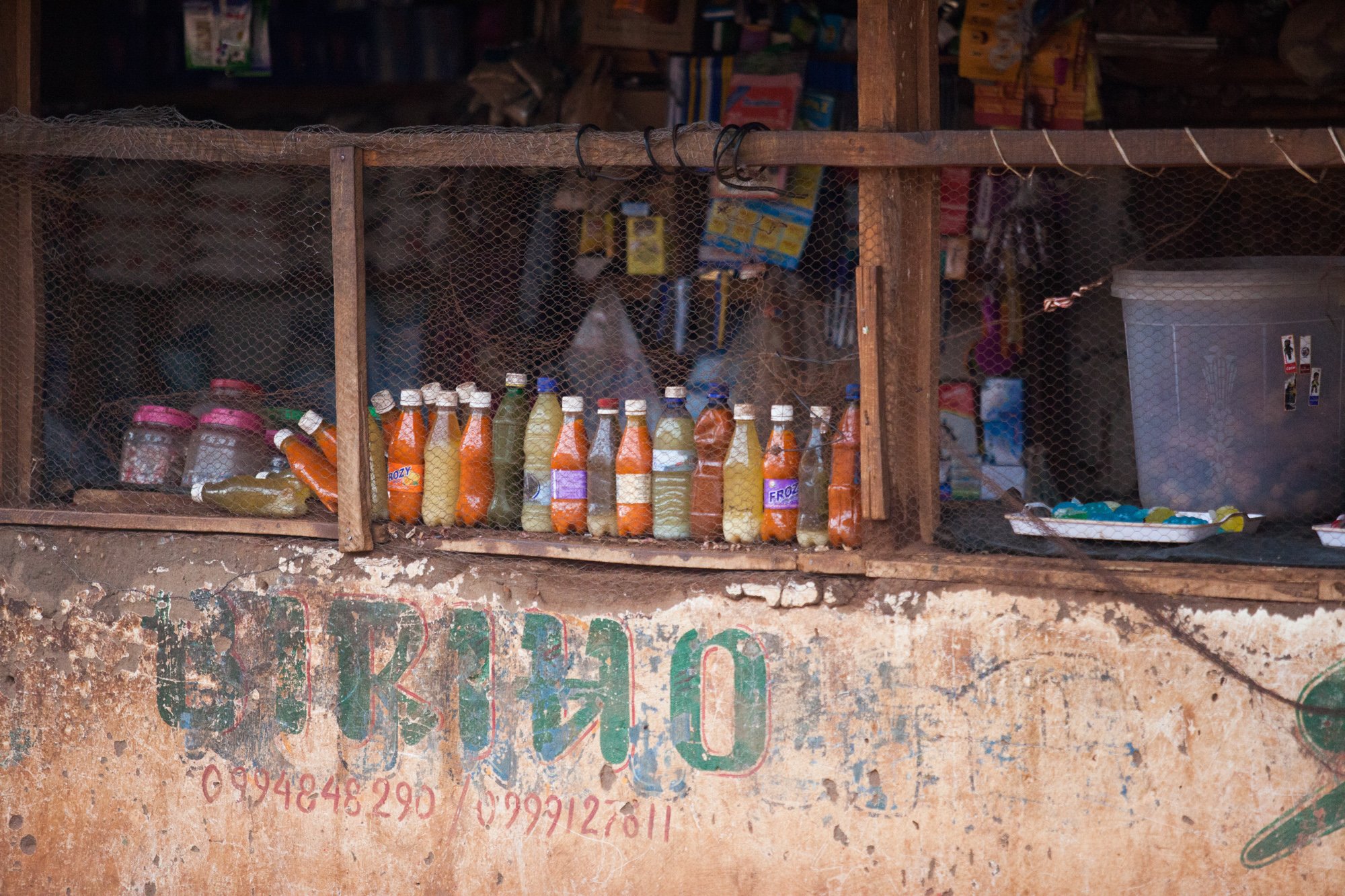
CHRR applied for an emergency grant from the Rapid Response Fund, managed by Frontline AIDS (at the time called the International HIV/AIDS Alliance). They received an allowance for food and been able to buy essentials such as mosquito nets, cooking materials, clothes, blankets and phone top-ups.

Mike Kaiyatsa from CHRR became one of the very few people the men could rely on. Didier contacted him and Kaiyatsa worked hard, along with other partners, to get them all housed safely.

Suphi has read Danny the Champion of the World from cover-to-cover. He likes it because "it was talking about a father teaching his son how to steal - it’s funny.”

Nsima, made from flour and water. A lack of food and essentials was a big issue at the safehouse to start with. Matofu said: “Of course we are grateful, but it felt like we were being given the choice to die of violence or die of starvation”. “If we talked to UNHCR about the situation concerning food they'd say: ‘It sounds like you people want to go back to Dzaleka.”

Playing in the garden. Suphi says the good thing about the safehouse is: “Here I have peace, I can play alone without any stress,” but the bad thing is, “I’m just alone, there’s just that ball of mine."
![Matofu is a religious man. He believes people who refer to the bible to justify homophobia have misinterpreted God's word. He points a chapter in the bible, highlighted in rainbow colours, that refers to the wonderful love of man [sur]passing the lov](https://images.squarespace-cdn.com/content/v1/60429ee88dcf0266475f1b7a/8442cf1d-881b-464d-984a-80a9e776e07c/Dzaleka-32.jpg)
Matofu is a religious man. He believes people who refer to the bible to justify homophobia have misinterpreted God's word. He points a chapter in the bible, highlighted in rainbow colours, that refers to the wonderful love of man [sur]passing the love of a woman.
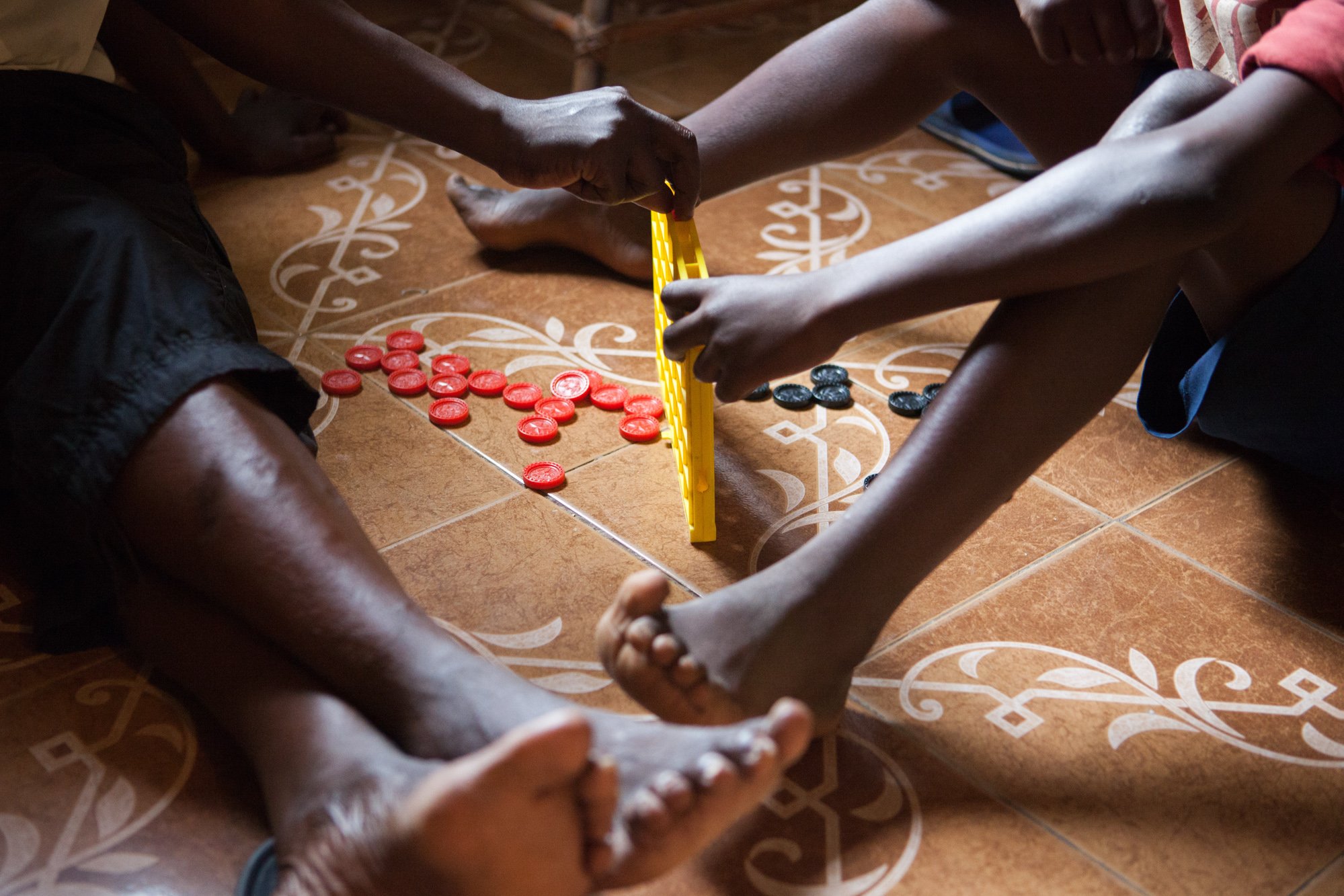
Matofu has been in touch with the UNHCR representative about education for Suphi. They described this as “complaining".

The advocacy work of a handful of people, but especially Mike at CHRR, on behalf of Didier, Matofu and Suphi finally paid off and the trio were recognised as refugees by UNHCR. They have been granted asylum in Canada. They left the safehouse behind and relocated in April 2018. Didier said: “I hope to look for a job, study paramedics and a humanitarian course – two things I have been involved with all my life. I also hope sometime to play soccer. I want to live my life without fear of being persecuted.”
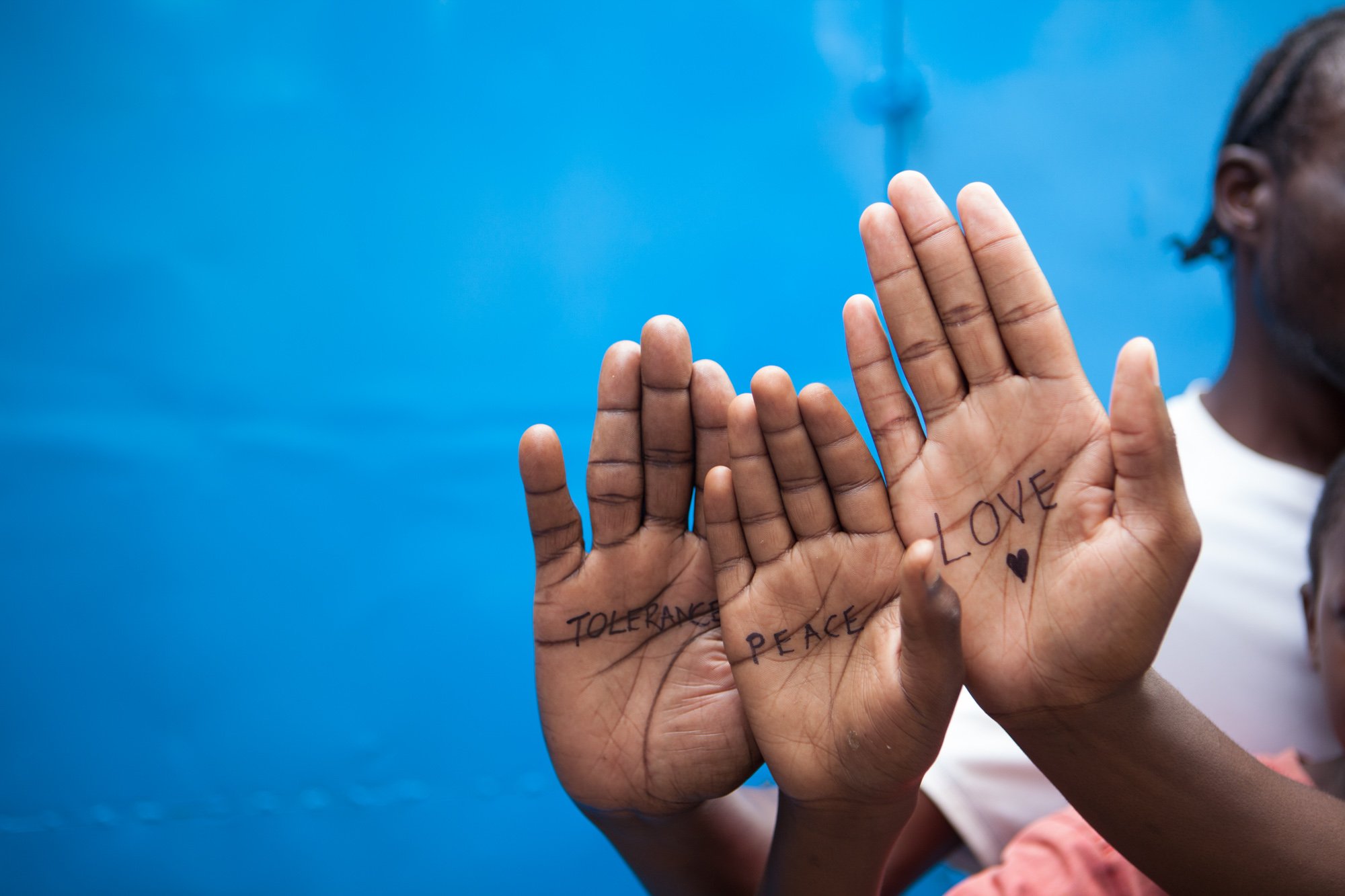
Tolerance. Peace. Love. What they wished for when they were still in Malawi. From selfies and WhatsApp messages semt from Canada I am beyond pleased to share that they are doing well, and Suphi has made lots of new friends at school.